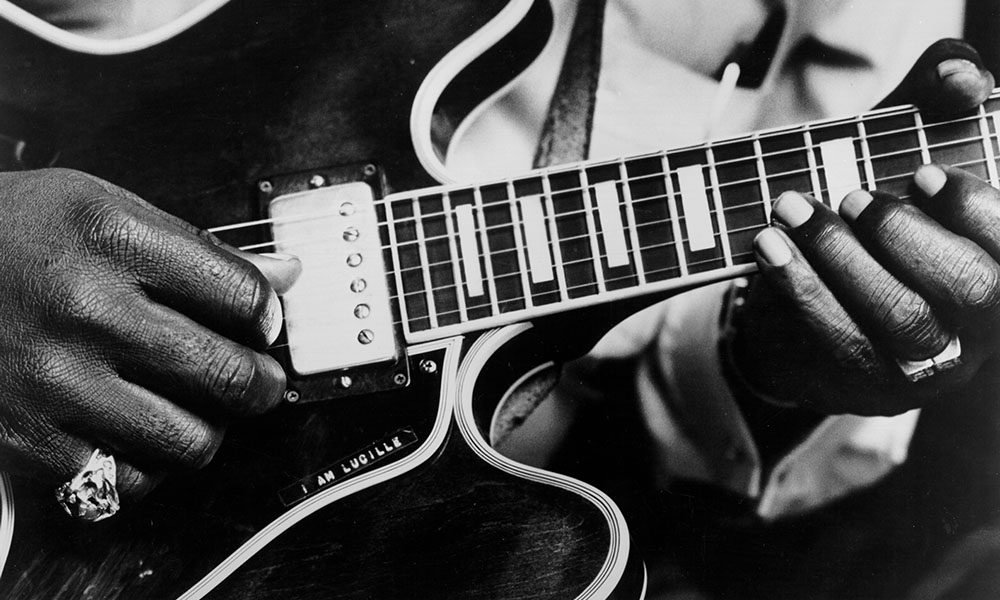Decca Guitars have a rich history that dates back to the early 20th century. The company was founded in the United States in the 1930s and quickly gained a reputation for producing high-quality instruments. Decca Guitars were known for their craftsmanship, attention to detail, and unique designs.
The significance of Decca Guitars in the music industry cannot be overstated. Many famous musicians have used Decca Guitars throughout their careers, including Jimi Hendrix, Eric Clapton, and Jimmy Page. These guitars have become iconic symbols of rock and roll and have played a crucial role in shaping the sound of popular music.
Understanding the Anatomy of Decca Guitars: Features and Components
To fully appreciate the beauty and craftsmanship of Decca Guitars, it is important to understand their anatomy. A typical Decca Guitar consists of several key components, including the body, neck, fretboard, pickups, and bridge.
The body of a Decca Guitar is usually made from high-quality wood such as mahogany or maple. It is designed to resonate and produce a rich, warm tone. The neck is attached to the body and is usually made from the same type of wood as the body. It is where the fretboard is mounted, which is where the player presses down on the strings to produce different notes.
One of the unique features of Decca Guitars is their pickups. These are electromagnetic devices that capture the vibrations of the strings and convert them into an electrical signal that can be amplified. Decca Guitars typically have two or three pickups, which can be adjusted to produce different tones.
How to Choose the Right Decca Guitar for Your Playing Style

When choosing a Decca Guitar, there are several factors to consider. First and foremost, you need to think about your playing style. Are you a beginner or an experienced player? Do you prefer a clean, crisp sound or a more distorted, aggressive tone? These are all important considerations that will help you narrow down your options.
Another factor to consider is the type of music you play. Different genres require different types of guitars. For example, if you play blues or jazz, you may want to consider a hollow-body Decca Guitar, which produces a warm, mellow tone. On the other hand, if you play rock or metal, you may prefer a solid-body Decca Guitar, which produces a brighter, more aggressive sound.
It is also important to try out different guitars before making a decision. Visit a music store and spend some time playing different models to see which one feels and sounds the best to you. Pay attention to the weight, balance, and overall comfort of the guitar. Remember, the right Decca Guitar is the one that feels like an extension of your body and allows you to express yourself fully.
Essential Maintenance Tips for Keeping Your Decca Guitar in Top Condition
Once you have chosen the perfect Decca Guitar for your playing style, it is important to take good care of it to ensure it stays in top condition. Regular maintenance will not only prolong the life of your guitar but also ensure that it continues to sound and play its best.
One of the most important aspects of guitar maintenance is keeping it clean. Use a soft cloth to wipe down the body and neck after each use to remove any dirt or sweat that may have accumulated. Avoid using harsh chemicals or abrasive materials that could damage the finish.
Another crucial aspect of guitar maintenance is keeping the strings in good condition. Change your strings regularly to maintain optimal tone and playability. It is also important to keep the fretboard clean and moisturized. Use a specialized fretboard cleaner and conditioner to remove dirt and grime and prevent the wood from drying out.
Lastly, it is important to store your Decca Guitar properly when not in use. Invest in a good quality guitar case or stand to protect it from dust, humidity, and accidental damage. Avoid exposing your guitar to extreme temperatures or direct sunlight, as this can cause the wood to warp or crack.
Exploring the Unique Sound of Decca Guitars: Tone and Timbre
One of the most distinctive features of Decca Guitars is their unique sound. They are known for their rich, warm tone and excellent sustain. The combination of high-quality wood, craftsmanship, and pickups contribute to the overall sound of a Decca Guitar.
The tone of a Decca Guitar can be described as full-bodied and balanced. It has a natural warmth and depth that is highly sought after by musicians. The sustain, or the length of time a note rings out, is also exceptional on a Decca Guitar. This allows players to create long, flowing melodies and solos.
The timbre of a Decca Guitar is also worth mentioning. Timbre refers to the unique characteristics of a sound that distinguish it from other sounds. Decca Guitars have a distinct timbre that sets them apart from other guitars. They have a certain sweetness and clarity that is highly desirable for many styles of music.
Mastering the Art of Playing Decca Guitars: Techniques and Styles
Playing a Decca Guitar requires skill and technique. There are several different playing techniques that can be used to achieve different sounds and styles on a Decca Guitar.
One common technique used on Decca Guitars is bending. Bending involves pushing or pulling on a string to change its pitch while it is still ringing out. This technique adds expression and emotion to your playing and is commonly used in blues and rock music.
Another technique commonly used on Decca Guitars is palm muting. This involves lightly resting the palm of your hand on the strings near the bridge to dampen the sound and create a percussive effect. Palm muting is often used in heavy rock and metal music to create a chugging, rhythmic sound.
Different playing styles can also be achieved on a Decca Guitar. For example, if you prefer a clean, jazzy sound, you can use your fingers to pluck the strings instead of a pick. This creates a softer, more delicate tone. On the other hand, if you prefer a more aggressive, distorted sound, you can use a pick and play with more force and intensity.
Amplifying Your Decca Guitar: Tips for Choosing the Right Amp and Effects
To fully unleash the power and versatility of your Decca Guitar, it is important to choose the right amplifier and effects. The right combination of amp and effects can greatly enhance your tone and allow you to create a wide range of sounds and textures.
When choosing an amplifier for your Decca Guitar, consider factors such as wattage, speaker configuration, and tonal options. If you primarily play at home or in small venues, a lower wattage amp may be sufficient. However, if you play in larger venues or with a band, you may need a higher wattage amp to cut through the mix.
The speaker configuration of an amp also plays a role in shaping your tone. Different speaker configurations produce different frequencies and dispersion patterns. Experiment with different configurations to find the one that best complements the sound of your Decca Guitar.
Effects pedals are another important consideration when amplifying your Decca Guitar. There are countless effects pedals available, each with its own unique sound and capabilities. Some common effects pedals used with Decca Guitars include distortion, delay, reverb, and modulation effects such as chorus and phaser.
Recording with Decca Guitars: Best Practices and Techniques
Recording with a Decca Guitar can be a rewarding experience. To achieve the best results, it is important to follow some best practices and techniques.
First and foremost, make sure your Decca Guitar is properly set up and in tune before recording. This will ensure that your guitar sounds its best and stays in tune throughout the recording process. Use a good quality tuner to ensure accurate tuning.
When recording, experiment with microphone placement to capture the best sound from your Decca Guitar. Different microphone positions will yield different results, so take the time to find the sweet spot that captures the true essence of your guitar’s sound.
It is also important to consider the acoustics of the recording space. If possible, record in a room with good acoustics that will enhance the natural sound of your Decca Guitar. Avoid recording in rooms with excessive echo or background noise.
Lastly, take advantage of post-production techniques to further enhance the sound of your Decca Guitar. This can include adding effects such as reverb or delay, adjusting the EQ to shape the tone, and applying compression to even out the dynamics.
The Legacy of Decca Guitars: Famous Musicians and Their Decca Guitars

Decca Guitars have left an indelible mark on music history. Many famous musicians have used Decca Guitars throughout their careers, contributing to their iconic status.
One of the most notable musicians associated with Decca Guitars is Jimi Hendrix. Hendrix was known for his virtuosic guitar playing and innovative use of effects. He often played a white Decca Guitar during his performances, which has become synonymous with his image.
Eric Clapton is another famous musician who has used Decca Guitars extensively. Clapton is known for his soulful blues playing and has used Decca Guitars on many of his recordings. His use of Decca Guitars has helped to popularize their sound and influence generations of guitarists.
Jimmy Page, the legendary guitarist of Led Zeppelin, is also known for his use of Decca Guitars. Page’s powerful and dynamic playing style was perfectly suited to the sound of a Decca Guitar. His use of Decca Guitars on classic songs such as “Stairway to Heaven” and “Whole Lotta Love” has solidified their place in rock music history.
Conclusion: Embracing the Versatility and Power of Decca Guitars
In conclusion, Decca Guitars have a rich history and significant impact on the music industry. Their unique sound, craftsmanship, and iconic status have made them a favorite among musicians for decades.
Whether you are a beginner or an experienced player, there is a Decca Guitar out there that is perfect for your playing style. By understanding the anatomy of Decca Guitars, choosing the right one for your needs, and properly maintaining it, you can unlock its full potential.
Embrace the versatility and power of Decca Guitars and let their unique sound inspire you to create music that will stand the test of time. Whether you are playing in your bedroom or on stage in front of thousands, a Decca Guitar will be your faithful companion, helping you express yourself and make your mark on the world of music.
